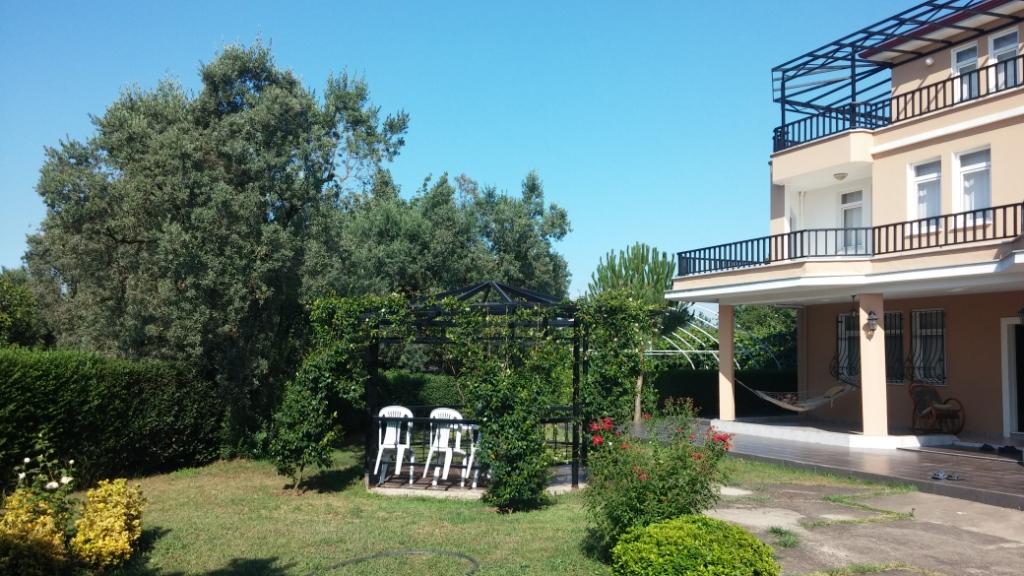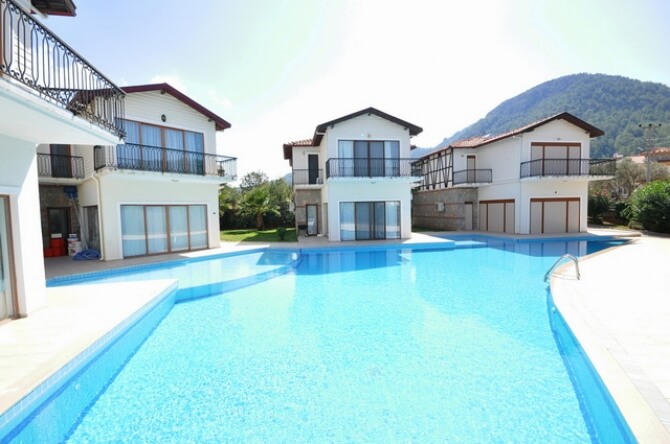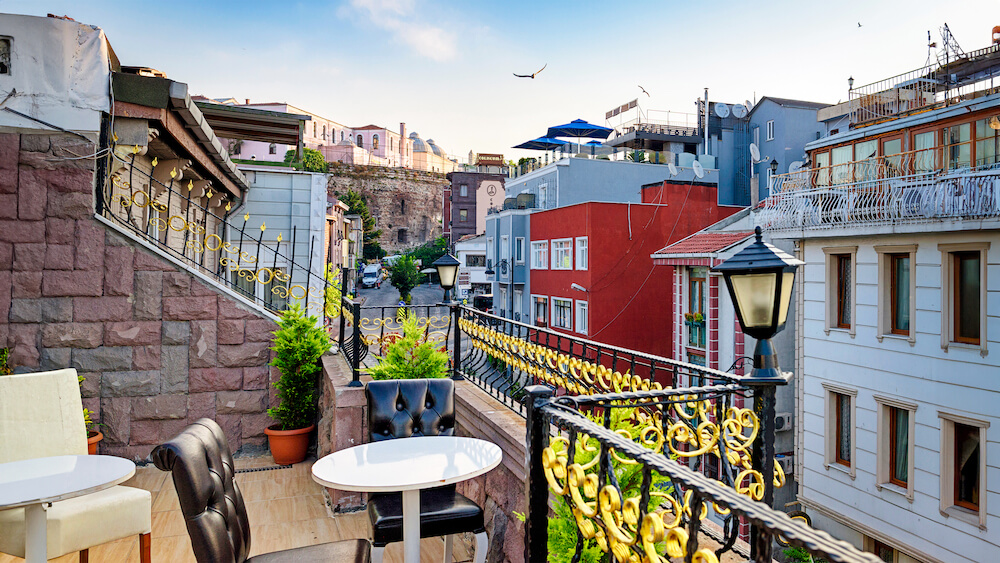Deciding where to live dramatically impacts your life. With many factors like the cost of living, the real estate market, job opportunities, and lifestyle preferences, determining the ideal location for you and your family is overwhelming. Whether relocating for work, starting a family, retiring, or simply changing your current lifestyle, careful consideration is needed for this massive financial commitment.
Each location offers unique advantages and challenges that must be weighed before making financial decisions. Ultimately, deciding what is the perfect location is a personal choice that should take into account your monthly housing budget, as well as individual needs and priorities. Carefully evaluating jobs, living costs, and community amenities helps you decide on the best location and living situation. But in this article, we will list tips, and advice so you can make easier decisions of where to set up home.

How to Decide Where to Live
1: The Big Vibes of City Life
Cities offer bustling, fast-paced lifestyles, numerous entertainment options, shopping centres, leisure facilities, and diverse culinary scenes. In fact, everything and anything is on your doorstep. Many cities are also hubs of culture, fashion, and art, therefore as well as promoting trends, they invent them. Typically, city centres also have higher living expenses, including housing and transportation, but have more employment choices, hence many working expats have retired to cities around the globe, and they also attract digital nomads looking to get a feel for the new country they are in.
The one downside to city life is noise and air pollution, but many cities worldwide have undertaken projects to reduce air pollution and provide cleaner living for local citizens. Additionally, they are no ideal if you don’t like crowds, because big cities are often home to millions of people.
Pros of Big City Living
- Abundance of employment across various industries.
- Diverse cultural and nightlife experiences, including cuisine, arts, and entertainment.
- Top-notch healthcare and specialists.
- Extensive public transportation networks reduce the need for personal vehicles.
- Many educational institutions and lifelong learning opportunities.
- Niche communities and support networks for foreigners
- The convenience of having numerous shops, restaurants, and services on your doorstep
- Exposure to ideas, perspectives, and people from diverse backgrounds.
Cons of Living in a Massive City
- High living costs, including housing, groceries, and transportation.
- Increased air and noise pollution and environmental concerns.
- Limited personal space and privacy as well as traffic congestion and longer commute times.
- Higher levels of crime and safety concerns in certain areas.
- Potential for feeling disconnected or isolated.
- The competitive nature of job markets leads to increased pressure.
- Lack of green spaces and nature outlets
- Challenges in finding affordable housing for low-income individuals and families.

2: Countryside and Village Living
Countryside living offers peaceful, close-knit communities and is ideal for tranquillity and slower paces. However, the downsides are longer commuting times and limited transport options for those who don’t have the luxury of retiring. At the same time, the countryside provides outdoor activities, scenic landscapes, and a connection with nature, leading to a quiet life without busy roads. For many citizens in their older years, retiring to the countryside is a dream.
Pros of Living in a Village/Countryside:
- Tranquil and peaceful environment with minimal noise pollution.
- A close-knit community where neighbours often know and support each other.
- Fresh air and natural surroundings promote overall well-being.
- Lower living costs than big cities, particularly for housing.
- Enjoy more outdoor activities like gardening.
- More excellent safety and security with lower crime rates.
- Local traditions and cultural heritage, as well as locally produced food, fostering sustainability.
- Reduced stress and slower pace of life, promoting relaxation and mental health.
- Opportunity for self-sufficiency through gardening or small-scale farming.
Cons of Village/Countryside Living
- Limited employment, especially in specialised industries.
- Lack of amenities and services requiring travel for specific needs.
- Reliance on personal transportation
- Social isolation for newcomers or younger individuals.
- Limited healthcare often requires travel for medical services.
- Challenges with internet connectivity and modern technology.
- Feeling disconnected from cultural events and diversity found in cities.
- Seasonal limitations and weather-related challenges, like snow in winter
- Dependence on agriculture and natural resources.
- Limited educational and career advancement

3: Coastal Areas and Seaside Towns
Coastal towns provide better air quality, and stunning views and beaches, making life perfect for enjoying water-based hobbies. A common factor that many people assume is coastal living is cheaper. In fact, it isn't. Even in foreign countries, the closer a property is to the sea, the more expensive the land is. Inland areas sell for cheaper prices. That is why beachfront homes with fantastic sea views often cost millions of pounds to wake up to.
Naturally, social scenes focus on seaside lifestyles, such as sailing, water sports, swimming, and sunbathing. For many, though, the cleaner air, peaceful life, and beachside living are more than enough. Many UK people who enter the phase of life retirement often head to seaside towns in foreign countries.
Advantages of Living in Coastal Towns by the Sea
- Stunning natural scenery with picturesque sea views
- Water-based activities like swimming, surfing, and sailing.
- Fresher air quality and coastal proximity
- Abundance of seafood and coastal cuisine, often fresh and locally sourced.
- More relaxed lifestyles focused on leisure and outdoor recreation.
- Enjoy beach picnics and sunset watching.
- Tourist attractions and seasonal employment in hospitality industries.
- Close-knit coastal communities often foster strong social connections.
- Potential investment in waterfront properties with scenic views.
Disadvantages of Living in Coastal Towns by the Sea
- Seasonal fluctuations in population due to tourism impact local infrastructure.
- Higher property and rental costs, particularly in desirable coastal areas.
- Dependence on weather conditions for outdoor activities which can be unpredictable.
- Fewer jobs outside of the tourism and fishing industries.
- Environmental concerns like overfishing affect marine ecosystems.
- Challenges with insurance coverage and premiums

4: Suburban Living for Families
Regarding personal situations and especially pollution, many families opt to live in neighbourhoods on the outskirts of city centres. This has many benefits, including more affordable housing budgets, housing market trends for families, and lower pollution levels. Remember to check for noise complaints if this sounds like your dream town. People like the quiet suburban lifestyle and amenities for families rather than living it up large. The primary factors for suburban living are family lifestyles and cheaper basic living expenses.
Advantages of Suburban Living
- More space and larger homes, often with yards or gardens.
- Quieter and more peaceful environment, as well as lower crime rates.
- Local schools and educational institutions for families.
- Close proximity to nature reserves, parks, and recreational areas.
- Community amenities like swimming pools, playgrounds, and community centres.
- Shopping centres and retail outlets without congested urban shopping districts.
- Better air quality than densely populated cities
- Stronger community and neighbourly relationships.
Disadvantages of Suburban Living
- Longer commute times for work or entertainment.
- Limited cultural options and lack of diversity in demographics and cultural experiences.
- Reliance on cars for transportation in some places.
- Higher utility costs for larger homes and properties.
- Potential for urban sprawl and loss of green spaces as suburbs expand.

5: Tips When Considering Public Transportation Systems
Regardless of where you choose to live, transport is always a major factor. Proximity to train stations or bus stops is paramount for accessibility to various destinations, especially when we commute daily to work. Living close to transport hubs reduces travel time and effort, making daily commuting more convenient, and reliable transport systems ensure we get to our destinations on time, minimising unnecessary delays or inconveniences.
Living near affordable bus and train links also helps reduce commuting expenses, freeing up financial resources for other purposes, but commuting expenses should be considered when evaluating transport links. Remember though to
- Check bus, train, metro links, schedules and also bike cycle lanes
- Consider parking spaces both in your chosen area and destination
- Don't forget to account for rush hour traffic
6: Nearby Schools & Education Situation
When choosing a new home, families often prioritise the proximity and quality of reputable schools that shape children's education and impact property values. Prospective homebuyers should thoroughly research schools and childcare facilities they are interested in. Researching school rankings, test scores, and graduation rates helps determine education standards in particular areas.
Additionally, understanding the options for schools provides families with more choices, especially if you have a child with special education needs who require additional support and individualised education plans. When considering a new home, the importance of schools should not be underestimated. The quality of schools impacts property value and education standards. Researching school quality, availability, accommodation for specific needs, and post-high school options helps families decide the right choice.
- Check with local schools' boards for ratings
- Consider both public and private schools
- Pay extra attention if your children have special needs
7: Neighbours, Friends & Family
Think about the support network that you want. Some people are happy being self-sufficient and actually like their own company. While others crave social connections. Being close to loved ones daily offers numerous benefits, like childcare support. Raising children is a significant responsibility, and having family members or close friends nearby helps ease the burden.
They provide assistance with childcare, whether picking up children from school or providing last-minute babysitting when unexpected circumstances arise. This kind of support can significantly alleviate stress for parents and give them peace of mind, knowing that their children are in good hands. People are also vital during emergency situations. Life is unpredictable, and having friends nearby helps during times of crisis. Whether it's a medical emergency or natural disaster, support networks close by provide immediate help and emotional support.
For some, neighbours provide invaluable support systems, while others prefer to keep themselves to themselves. From babysitting to playdates, neighbours become like an extended family, always ready to help. Furthermore, maintaining solid relationships with neighbours, family and friends can boost our mental and emotional well-being. The joy and fulfilment of spending quality time are irreplaceable.
8: The Property Market and Affordable Housing Costs
Property markets contribute heavily towards a country's economy, but also when determining where we want to live. Local and regional property markets are influenced by government regulations, economic conditions, and demographic changes, and whether you are an investor, developer, homeowner, or tenant, understanding the property market compared to your average salary helps you make informed decisions and maximise investment opportunities.

How to Research and Determine Local Property Markets
Identify Target Area: Define the geographic area you're interested in and study historical data and trends regarding property prices, sales volume, and market fluctuations. Look into local reports, government statistics, and industry publications. Research recent sales of similar properties in the target area. Analyse sale prices, square footage, and property conditions to gauge market value.
Local Economy and Demographics: Evaluate the economic health, including employment rates, GDP growth, and industry diversification. Research major employers and upcoming developments that could impact property demand. Examine population growth, age demographics, and household income levels. Determine whether the area attracts specific demographics like families, retirees, or young professionals.
Local Real Estate Agents: Consult with local estate agents with in-depth knowledge. Gain insights into market dynamics, upcoming developments, and property investment opportunities. Utilise online real estate portals to explore property listings, market trends, and neighbourhood data. Check local Facebook groups to learn more about a community's activities, crime rates, noise pollution, and events. This is where you get honest information and can decide if that community fits your personal situation.
Property Inspections: Assess the condition, potential renovation needs, and market suitability of properties you're interested in. Perform due diligence on legal aspects, zoning regulations, and possible property value issues.
About Our Real Estate Agent Services
We are Property Turkey, a real estate agent with offices in the UK, Pakistan, South Africa, India, Iran, and all major cities and destinations within Turkey. The knowledge of our real estate professionals is second to none. As one of Turkey's top property websites, we can help you find the perfect property in Turkey and help you how to decide where to live or buy a holiday home.
Call us today if you want more information about housing markets, living experiences, or key factors to consider when choosing where to live overseas and buy property. Alternatively, if you haven't considered owning a property abroad before, see our portfolio of apartments and villas for sale, which will give you an idea of what this country offers. Our blog also discusses holidaying, leisure activities, and living experiences in this beautiful foreign country.









